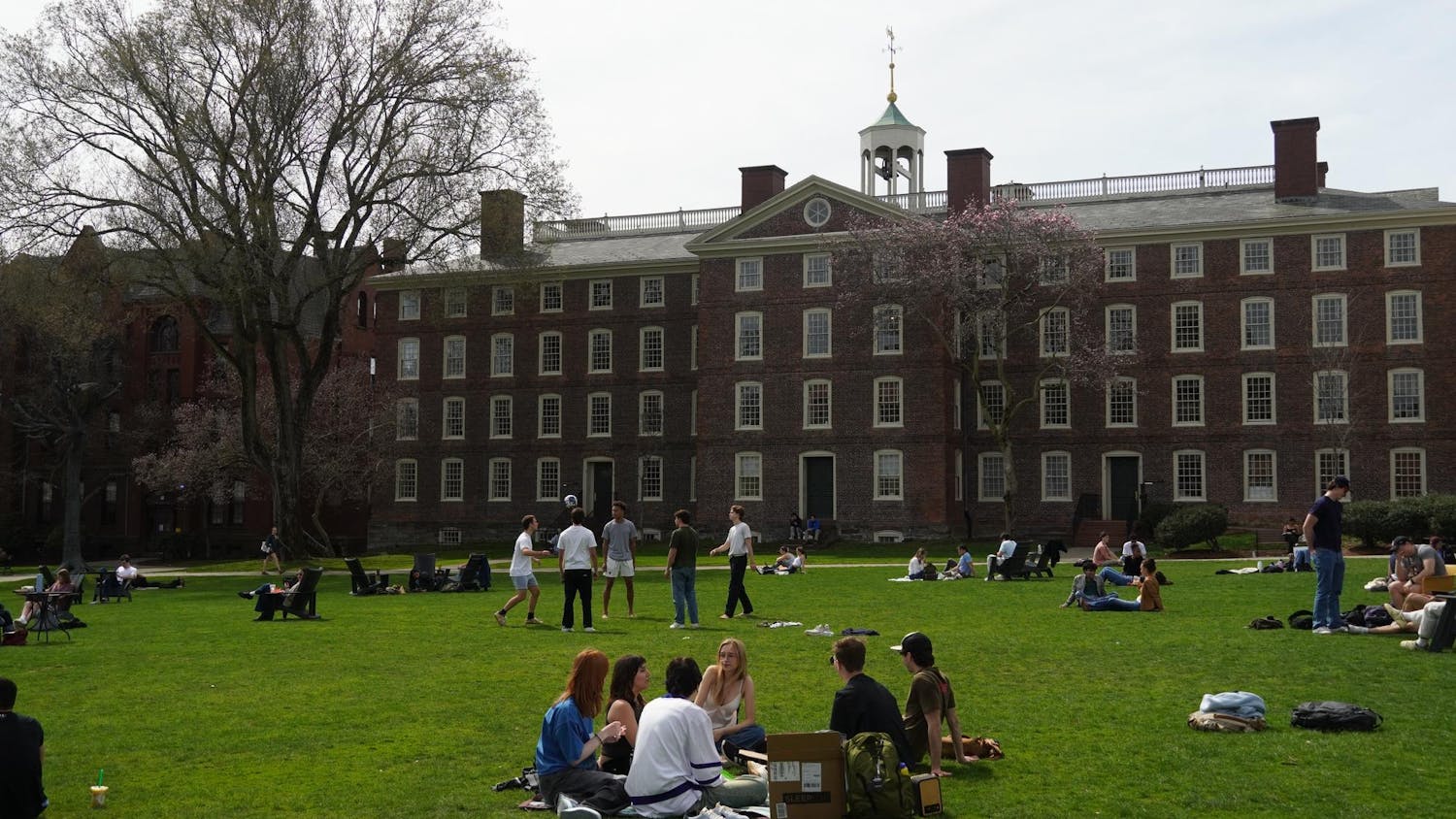The Corporation, the University’s highest governing body, voted to approve a 5 percent increase in undergraduate student tuition charges as part of a $1.2 billion operating budget for the 2020 fiscal year at its winter meeting Feb. 7-9.
The 5 percent tuition hike will increase the cost of undergraduate charges from $54,320 to $57,112.
The University Resources Committee — a council made up of stakeholders from the University’s faculty, administration, staff and students — developed the budget report and presented it to the Corporation. The committee met multiple times over the course of the fall semester to analyze data and build the budget proposal. Provost Richard Locke P’18 chaired the committee, which unanimously endorsed the budget Jan. 22.
The budget includes $143.1 million for undergraduate financial aid, which is a $6.2 million increase over the last fiscal year, according to a University press release.
Despite the increased tuition fees, support for low-income students “won’t be affected at all,” Locke said. “(Student) aid covers whatever the increases are. That’s why the financial budget historically grows at a faster rate than tuition and fees,” he added.
The University aims to improve financial aid packages for undergraduates in a number of ways, such as increasing scholarship amounts for low-income students and reducing summer earnings expectations — a contribution that students are expected to earn over the summer to pay toward their academic expenses, Locke said.
The budget also includes continued support for Brown Promise, which eliminated student loans from financial aid packages as of the 2018-19 academic year, The Herald previously reported. Brown Promise added “between 5 and 6 million dollars in additional expense to our budget,” Locke said. The University offset that additional expense through fundraising as part of the BrownTogether campaign, a multi-year fundraising campaign initiated by President Christina Paxson P’19. The University is “trying to raise half a billion dollars just in financial aid” through this campaign, Locke added.
Because the University accepts undergraduate students on a need-blind basis, the budget for undergraduate financial aid is an estimate of the actual cost of aid for the upcoming year. “Sometimes we go under budget and sometimes we go over budget. This past (fiscal) year… it looks like we’ve gone under budget by maybe a couple million dollars,” Locke said.
The graduate student aid budget also increased, expanding $14.2 million to total $159.9 million, according to the release. The aid budget for graduates is larger than for undergraduates in part because of a “transitional payment” stipend the University initiated to assist some graduate students with the cost of living in Providence, Locke said. This stipend, which launched for graduate students in fall 2018, is the basis for the graduate student aid budget, he added.
Graduate students “were finding themselves quickly going into debt” thanks to cost of living in Providence, Locke said. Historically, the University would grant the stipend to students who requested it on a case by case basis. But to avoid creating stigma against those who received the stipend, the University decided to “give it to everyone,” he said.
In the final report for the University’s official re-accreditation from the New England Commission of Higher Education issued fall 2018, evaluators encouraged the University to establish “robust contingency plans” to mitigate concerns that the University’s budget has “very little margin for slippage” in unanticipated financial situations, the report stated.
Currently, the University is “much more heavily dependent on tuition and fees for its budget than our peers, and we need to change that,” Locke said. In addition to fundraising through the BrownTogether campaign, the University has been “reducing the payout of the endowment” in recent years and has been looking to diversify its sources of revenue, Locke added.
After the release of last year’s budget, which hiked tuition by 4 percent, Locke stated that at “some point we are really going to hit the ceiling and are not going to be able to increase the tuition on an annual basis,” The Herald previously reported.
The URC report projects “an operating deficit of $1.3 million,” which “is an improvement of roughly $4 million” compared to FY19. By greatly reducing the University’s operating deficit, the budget “(positions) us for financial success for the decades to come,” Locke said in a University press release.
“The proposed budget reflects Brown’s unwavering commitment to integrative scholarship, educational leadership, academic excellence and campus development, while delivering a nearly balanced budget,” the report states.

ADVERTISEMENT




